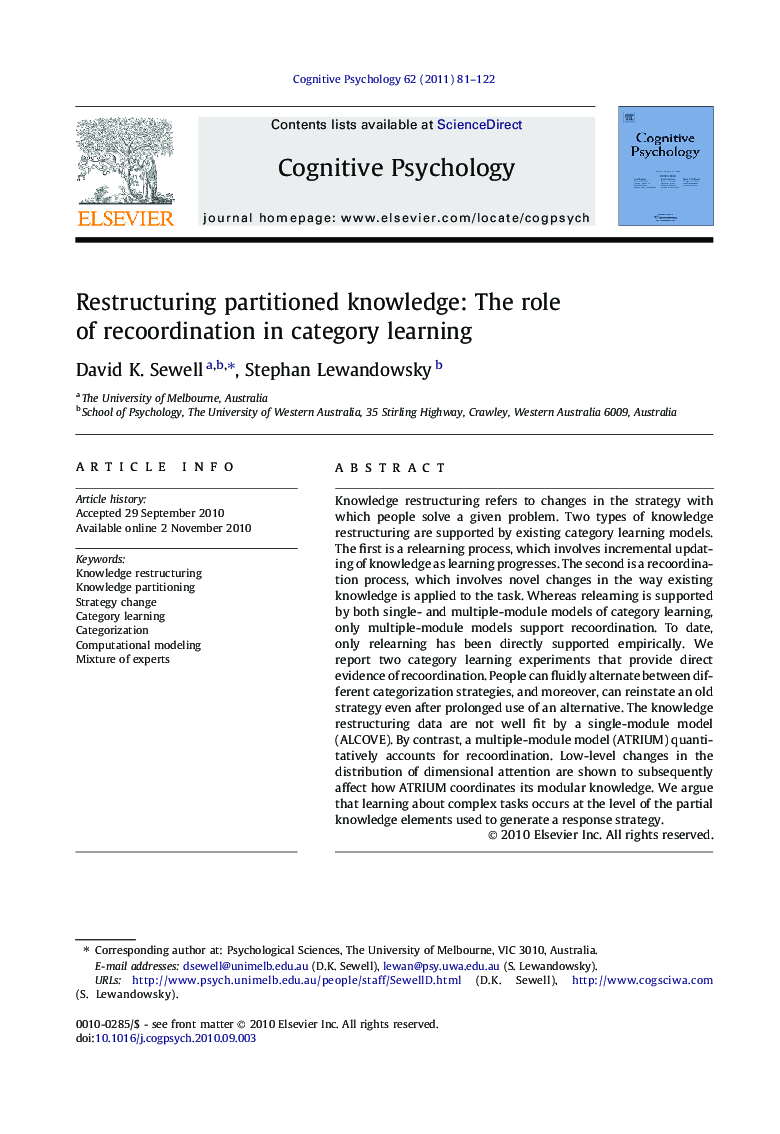| Article ID | Journal | Published Year | Pages | File Type |
|---|---|---|---|---|
| 916958 | Cognitive Psychology | 2011 | 42 Pages |
Knowledge restructuring refers to changes in the strategy with which people solve a given problem. Two types of knowledge restructuring are supported by existing category learning models. The first is a relearning process, which involves incremental updating of knowledge as learning progresses. The second is a recoordination process, which involves novel changes in the way existing knowledge is applied to the task. Whereas relearning is supported by both single- and multiple-module models of category learning, only multiple-module models support recoordination. To date, only relearning has been directly supported empirically. We report two category learning experiments that provide direct evidence of recoordination. People can fluidly alternate between different categorization strategies, and moreover, can reinstate an old strategy even after prolonged use of an alternative. The knowledge restructuring data are not well fit by a single-module model (ALCOVE). By contrast, a multiple-module model (ATRIUM) quantitatively accounts for recoordination. Low-level changes in the distribution of dimensional attention are shown to subsequently affect how ATRIUM coordinates its modular knowledge. We argue that learning about complex tasks occurs at the level of the partial knowledge elements used to generate a response strategy.
